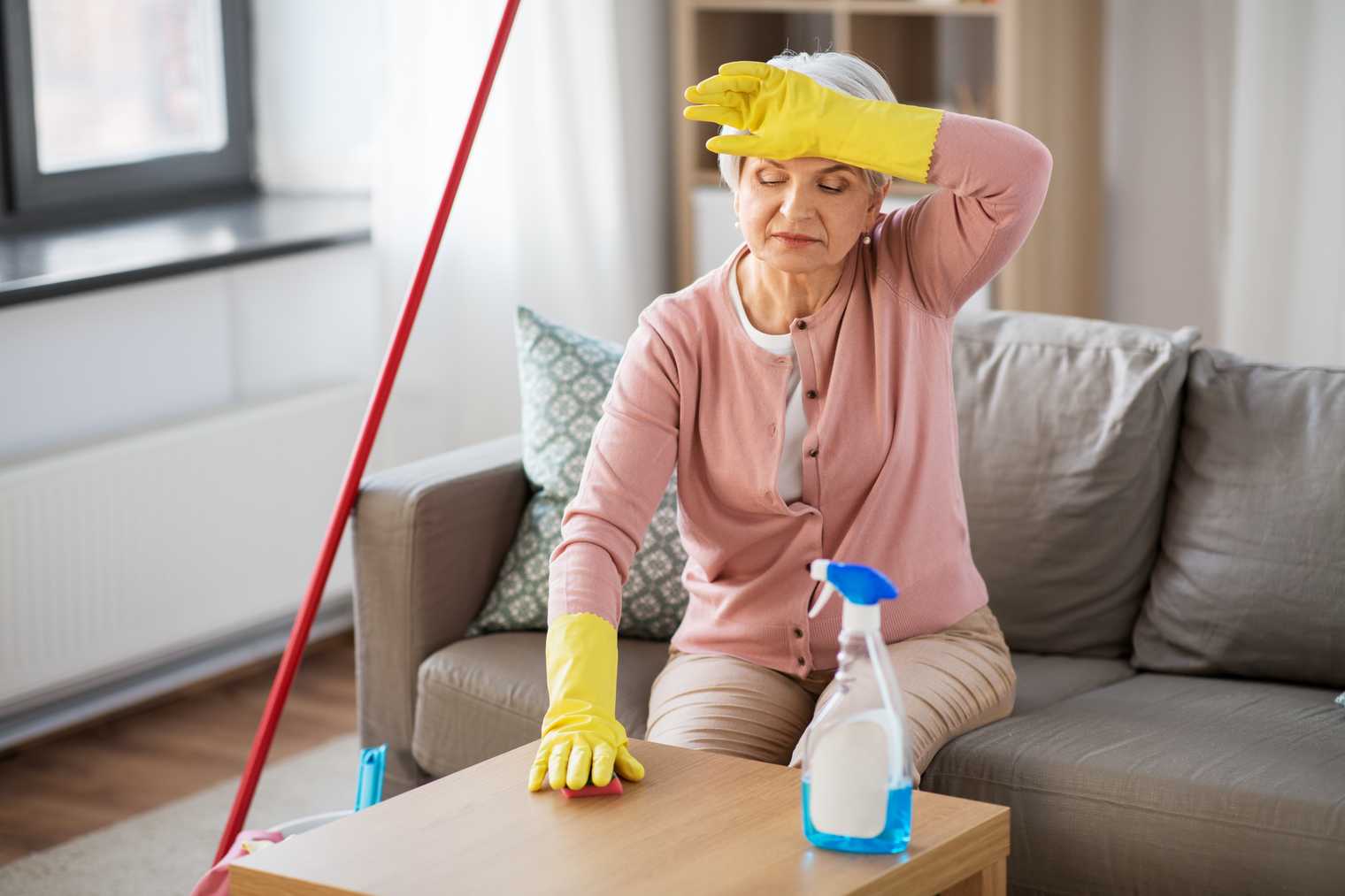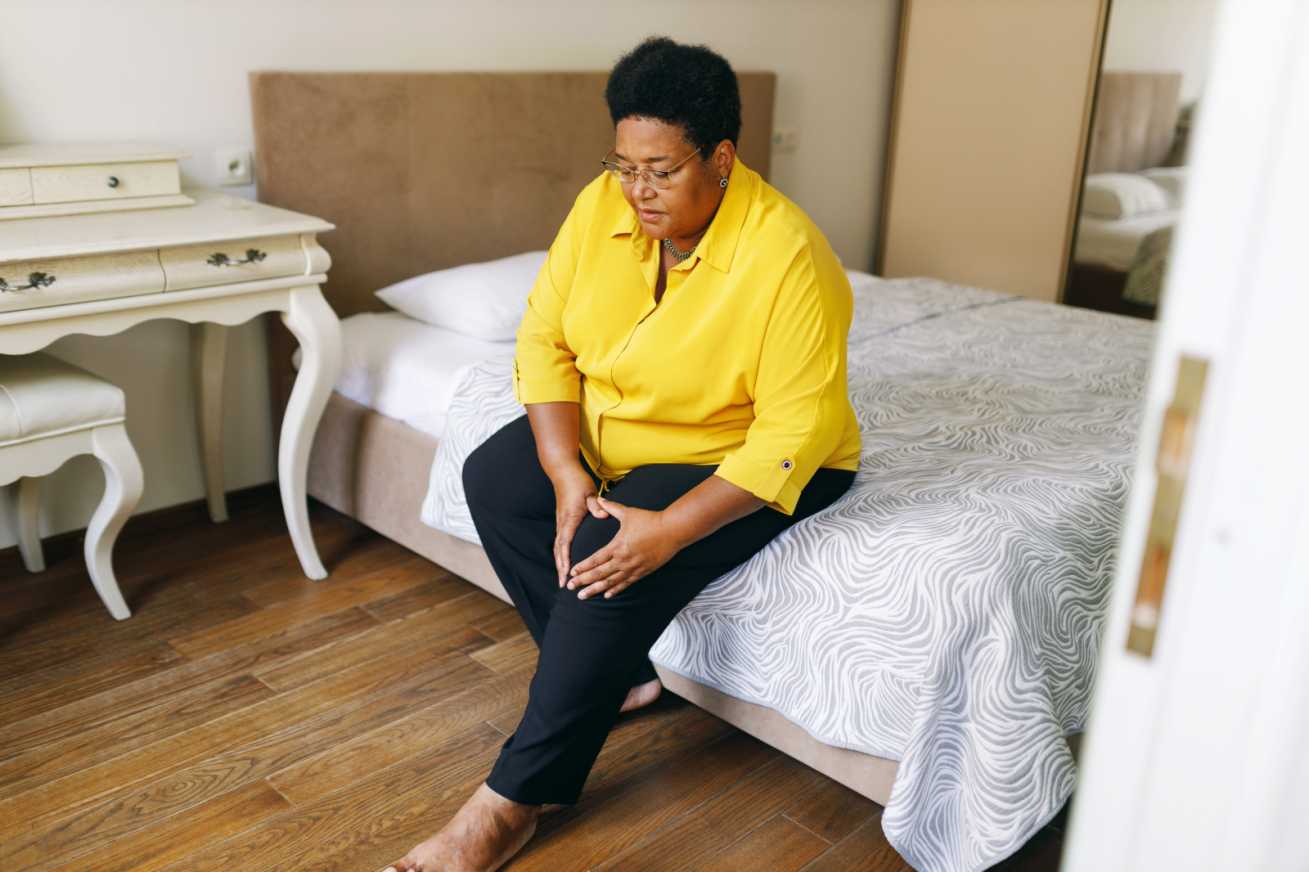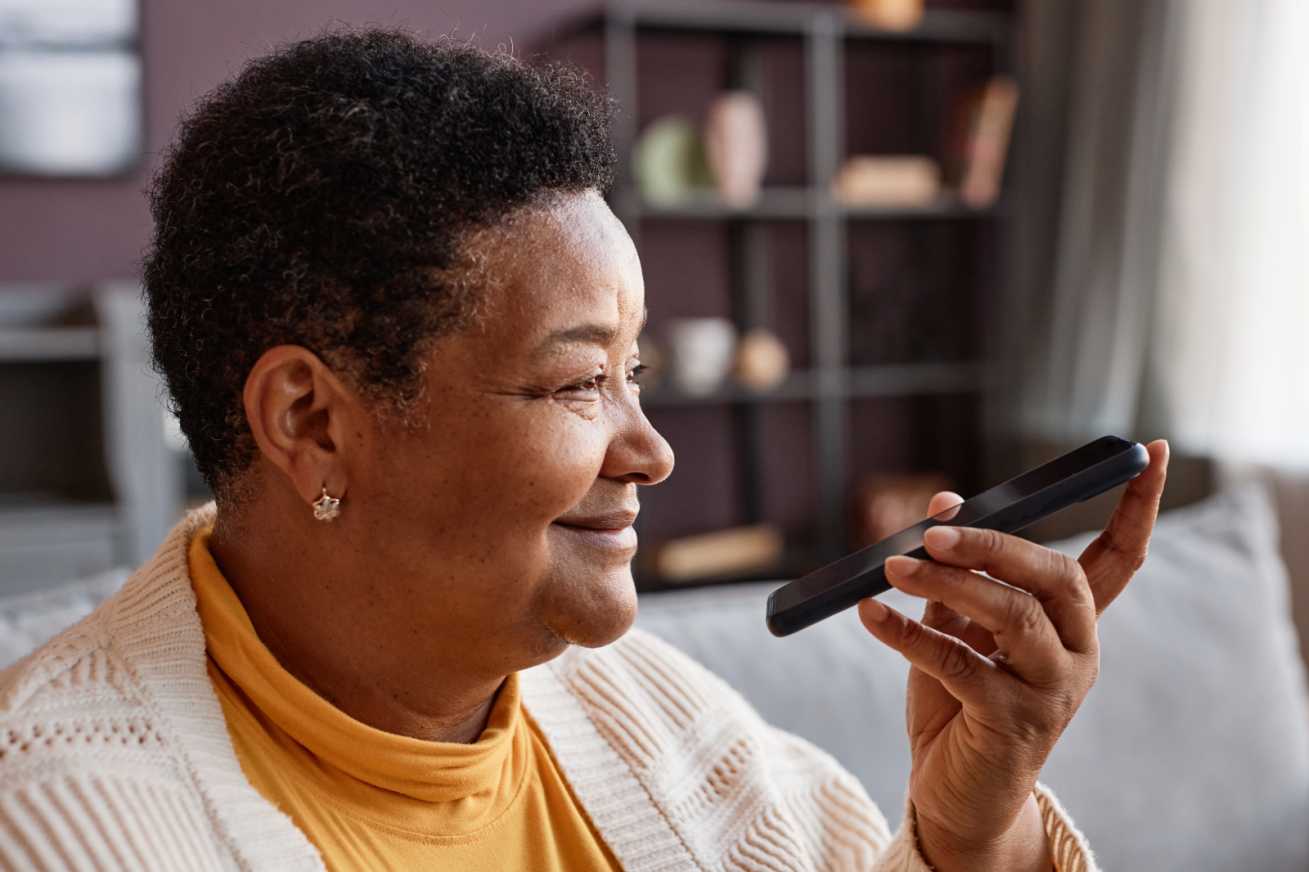Posted by Laura Sheath
How to Claim PIP to Pay for Home Care
Personal Independence Payment (PIP) is a benefit paid to people with a long-term health condition or disability. PIPs cover additional costs that come from living with an illness or ongoing condition, such as the cost of installing a wet room or covering the cost of taxi fares to appointments. PIPs also provide an opportunity to benefit from home care services.
Do you meet the eligibility criteria? If you do, and you haven't made a claim, you could be missing out on a potential £8,983 a year.
This guide explains how you can use PIPs to pay for the cost of a home carer and includes information on eligibility, benefits, the PIP application process, and resources for finding home care services in your area.
This PIP guide answers questions including:
- Can I get home help on PIP?
- What is PIP?
- How much is PIP?
- Would my PIP payments cover the average cost of home care?
- What’s the difference between daily living and mobility PIP?
- How do I apply for PIP to pay for home care services?
You can call our care experts at 01892 335 330 any day of the week. They can provide answers about funding for home care.
Can I claim PIP and use the money to pay a carer?
If you qualify for PIP and receive it, you can use the money to make your life easier. Some people need a home care professional to help them with moving around, washing, cleaning, and taking medication.

What is PIP (Personal Independence Payment) and who gets it?
The UK awards PIP to eligible applicants who are aged above 16, yet below the state pension age.
A disability or a long-term physical or mental health condition are reasons why someone may receive PIP payments.
Individuals who struggle with daily tasks or mobility due to their condition receive financial assistance for home modifications and support services. This financial aid helps them cover the expenses associated with adapting their living environment and accessing the necessary help.
Both of these need to apply to be eligible. PIP is a benefit that you can get even if you earn a lot or own a property. It doesn't depend on your income or property ownership.
How much is PIP now?
The 2023/2024 daily living component of PIP is worth £101.75 for the enhanced rate and £68.10 for the standard rate.
The mobility component is worth £71.00 for the enhanced rate and £26.90 for the standard rate.
This would mean that if you qualify for the enhanced daily living and mobility components of PIP, you could receive £172.75 a week, £748.53 a month and £8,983 a year.
How much will PIP increase for 2024/25?
All DWP benefits will rise by a further 6.7% from April 2024, which means that if you qualify for the enhanced daily living and mobility components of PIP, you'll get £184.30 a week, £798.63 a month and £9,583.60 a year.
Daily Living: The weekly standard rate will increase from £68.10 to £72.65, while the enhanced rated will increase from £101.75 to £108.55
Mobility: The weekly standard rate will increase from £26.90 to £28.70, while the enhanced rated will increase from £71.00 to £75.75
How often is PIP paid?
You receive payment every four weeks, unless you have a terminal illness, in which case you receive payment every week instead.
Would my PIP payments cover the average cost of home care?
Whether it is possible or not depends on various factors. These factors include the PIP payments you qualify for, the care you need, and your location in the UK.
For example, if you were to search for home care in Manchester on the Autumna directory for example, you’d find home care agencies that charge £30+/hour and others charging below £15.
Using data collected from the Autumna database, the average cost of private home care is £22 per hour. So, even if you’re only eligible for the minimum lower weekly rate (mobility part) of £26.90, you could potentially still afford to pay for an hour of home care a week.
Calculate the cost of your home care vs PIP
To work out how much the cost of home care services would be, ask your local authority for a care needs assessment. This will help you understand what you struggle with and how much help you’ll need from a paid home carer.
Once you know that, you can begin your search for home care services on Autumna.
Some older adults have their home care fully paid for by PIP payments. However, others who need more complex care may have to supplement the remaining cost with other income sources.
That might be from a pension, a job, a cash ISA savings account or other benefits such as the DWP cost of living payments, pension credit or carer’s allowance.
PIP example for home care costs
Jan experiences severe difficulty with her mobility because of her arthritis. She can no longer complete everyday tasks like changing her sheets, showering or hoovering.

Jan receives a weekly PIP payment (daily living part, enhanced rate) of £101.75 because she requires help with daily tasks.
Jan also receives a weekly PIP payment (mobility part, enhanced rate) of £71.00 because she requires help with mobility and generally getting around.
After receiving a care needs assessment from her local council, Jan thinks she needs 2 hours of help from a home carer a day.
Jan searches for home care on Autumna
Jan uses the Autumna directory of care services because it is independent and impartial and lists every registered home care agency in the UK. She compares options and finds a home carer with an hourly cost of £22 in her local area.
Jan calls the free advice line on Autumna to talk it through and to determine whether the home carer can provide her with what she needs.

She feels happy and they calculate that, based on the price of the home carer that she has chosen, and the amount of time she requires, her weekly home care cost will be £308.
Jan’s combined weekly PIP income is £172.75.
After using her PIP payments to contribute towards the cost of home care, Jan will pay £135.25 from her savings to cover the total weekly cost.
What’s the difference between daily living and mobility PIP?
Daily Living PIP may be awarded if you have difficulties:
- Eating, drinking, preparing and cooking food
- Taking care of personal hygiene and using the toilet
- Getting dressed and undressed
- Reading and communicating
- Managing and taking medication
- Making financial decisions
Mobility PIP may be awarded if you have difficulties:
- Physically moving around
- Leaving your home
- Figuring out a route and being able to accurately follow it
How do I apply for PIP to pay for home care services?
Before applying for Personal Independence Payment, first check if you’re eligible.
To claim PIP, you need to:
Contact the Department for Work and Pensions and fill in the PIP1 form.
You can call the below numbers for assistance in filling out your application:
- Telephone: 0800 917 2222
- Textphone: 0800 917 7777
- Relay UK (if you cannot hear or speak on the phone): 18001 then 0800 917 2222
Once your PIP1 form has been completed, you may receive an additional form which you’ll also need to complete called ‘How Your Disability Affects You’.
- Complete and return your form.
- You may also need to have a medical assessment.
What should I expect from the PIP assessment?
PIP claims usually require a face-to-face assessment that examines a person’s ability to perform common daily tasks and activities.
The assessment investigates various activities such as:
- Budgeting and other financial decisions
- Communication
- Dressing
- Food preparation
- Health monitoring
- Interpersonal interaction
- Nutrition
- Personal hygiene
- Reading and comprehension
- Toilet usage
Part of the PIP assessment is a score-based activity. You’ll be asked about the difficulty you may or may not experience when carrying out two mobility-related activities: moving around and travelling from one place to another.
The entitlement threshold for each component is 8 points for the standard rate and 12 points for the enhanced rate. The total score you receive based on this assessment determines your eligibility for PIP.
What evidence do I need to make a PIP claim?
These are all useful to include:
- A record of any sick notes.
- A record of your prescriptions, including information about any side effects that affect you.
- Emails or letters from medical professionals such as your GP, NHS clinicians or pharmacists.
- Your medical records from the date your illness or disability began to affect you.
- A detailed diary of your daily routine, including notes on your pain and the difficulties you experience throughout the day.

Tips on claiming PIP to pay for home care
- Request your medical records as soon as possible. Depending on your local GP service, this can be a frustrating process that requires patience.
- Keep a record of all of the documents that you send over for your PIP application, with copies of each document stored securely in case you need to send them over again.
- Take a picture of the documents as proof of what you’ve sent over.
- Write your National Insurance number on the top of your documents in case they get lost or separated after they’ve been sent.
Resources for PIP and home care advice
The Government PIP telephone number: 0800 917 2222.
Confidential PIP advice can be found at Citizens Advice.
Impartial home care information is available on Autumna.
The Autumna advice line can be accessed on 01892 335 330.
Receive a Free Home Care Shortlist!
Let our expert team of advisers get your search off to a great start.
Tell us a little about your needs and we'll send you a bespoke shortlist of home care providers! Click the button below to begin, it takes just a few minutes.
People also ask
What happens to my PIP payments if I go into the hospital?
Once you've been admitted to the hospital as a patient for a continuous period of 28 days, your PIP will be suspended if you're 18 years or older. However, your PIP payments will resume once you're discharged from the hospital.
What happens to my PIP payments if I move into a care home?
If you've been living in a care home for 28 days and the local authority is paying some or all of your care home fees, the daily living component of PIP will stop. However, the PIP mobility component is not affected if you are in a care home and you should still receive this as long as you still meet the eligibility criteria.
What happens to my PIP payments once I reach the state pension age?
If you claim Personal Independence Payment after you’ve passed the state pension age, the Department for Work and Pensions will normally give you an ‘indefinite award’. This means that there’s no end date. This will usually be reviewed every 10 or so years.
If you’re already getting PIP when you reach the state pension age, this will then be turned into an indefinite award.
What benefits can help pay for a home carer if I’m already over the state pension age?
If you're over the state pension age, you won't be able to make a new claim for PIP. Instead, you'll have to claim Attendance Allowance.
If you’ve previously received Personal Independence Payments then you can still make a new claim if you were eligible for it in the year before you reached State Pension age. Even if you’re working, have savings or are receiving most other benefits, you may still get PIP.
Other articles to read
From the blog

Older Persons Care Advice
Importance of person centred values in care
July 4th, 2025
Looking for care that truly puts you first? Discover why person centred values in care matter and how to find services that treat you like a person, not a task.

Older Persons Care Advice
How the assisted dying vote affects end of life care
July 3rd, 2025
What does the assisted dying vote mean for care, choice and dignity at the end of life? Discover what’s changing, and how it could affect your future.

Older Persons Care Advice
Winter Fuel Payment Eligibility review: What’s changed in 2025?
July 2nd, 2025
Confused by the 2025 Winter Fuel Payment eligibility review? Discover who still qualifies, what’s new, and how to make sure you’re not left out in the cold.






